The Development Prospects Of Solar Power Inverters In Ghana
 Jan 10,2025
Jan 10,2025

 XINDUN
XINDUN
In recent years, with the increasing global demand for renewable energy and the continued development of solar technology, Ghana's solar market is experiencing unprecedented development opportunities. Many countries on the African continent are actively exploring and investing in solar solutions. As an important country in West Africa, Ghana has great potential for the development of the solar industry, especially in the solar inverter market. As the core component in solar power systems, solar inverters play an important role in converting the direct current(DC) generated by solar panels into alternating current(AC) for home, commercial and industrial use. The development of solar inverters in Ghana is a positive signal for the country's energy future. So what is the outlook for the solar inverter market in Ghana?
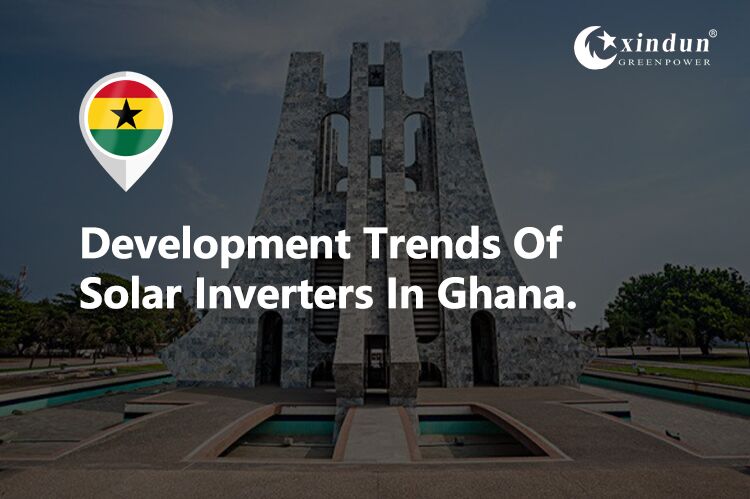
I.Ghana's power sector faces severe financial pressure
Ghana is facing its worst economic crisis in a decade, and power cut is becoming increasingly serious. According to a BBC report on March 12, 2024, the Ghanaian Parliament was ruthlessly cut off from power by the Ghana State Power Corporation due to arrears of 23 million Ghanaian cedis (10 Ghanaian cedis is about 5.6 yuan). The Ghana power industry is preparing to cope with increasing financial pressures, and the debt of Ghana's independent power producers (IPPs) will soar to about US$1.8 billion by the end of 2024.
According to the Ghana Chamber of Independent Power Producers, this stems from the decision of the Public Utilities Regulatory Commission (PURC) to cut electricity prices by 6.56% from April next year, exacerbating the industry's growing liquidity challenges.
Although the price cuts are intended to reduce the burden on consumers, production costs have not weakened, triggering a serious shortage of funds. Escalating costs such as fuel, maintenance and idle capacity charges, coupled with the depreciation of the cedi, have exacerbated the industry's financial difficulties. To solve the economic and power crisis, the country began to vigorously promote solar power generation and encourage more investors to participate.
II. Power Development In Ghana
Power infrastructure:
In 2020, Ghana's installed capacity was 5,134 MW and the actual power generation was 4,710 MW. As of now, Ghana's installed capacity is 5,626 MW and the total power generation capacity is 5,083 MW. Ghana's electricity demand will exceed 6,000 MW in the next few years, and the power generation capacity is insufficient to cover the growing demand for electricity. Moreover, more than 60% is provided by independent power producers. The government owes electricity bills to independent power producers, and the power supply is unstable, which has seriously affected Ghana's economy. The Ghanaian government is working to restructure the arrears of electricity bills to ensure the stability of power supply.
Energy structure
Of Ghana's power generation, 32.9% comes from hydropower, 66.4% from thermal power, and the remaining 0.7% from solar and biogas. Although Ghana plans to reach 10% of solar power generation by 2030, the current share of solar power generation is low.
The current market situation of Ghana's power industry shows the growth of electricity consumption, the increase of installed capacity and power generation, and the emphasis on the development of renewable energy. The government is promoting the transformation of the energy structure through policy support and international cooperation to achieve sustainable development goals and promote the development of the solar market.
III. Trends in Rooftop Solar Energy Development in Ghana
Rooftop solar is solar system with power-generating solar panels installed on the roof of a commercial or residential building. It captures the sun's light energy and converts it into electricity.
In the residential and commercial and industrial (C&I) sectors, solar energy is usually generated by end users who deploy rooftop solar. Solar systems for power generation are installed on the roofs of houses and commercial buildings or industrial plants where energy is used. Excess energy generated by individual owners can be sold to power companies.
Rooftop solar systems are smaller than ground-mounted solar power plants and have capacities in the megawatt range. Rooftop solar systems on residential buildings typically have capacities of up to 20 KW, while rooftop solar systems installed on commercial or industrial buildings typically have capacities of 100 KW or more.
In recent years, rooftop solar has been widely adopted in the country due to growing environmental concerns, government policy support, falling solar installation costs, and improved panel efficiency. This is likely to continue and support market growth during the forecast period. The Ghanaian government announced the Solar Rooftops Program in 2015 with the primary goal of reducing peak load by 200 MW using solar PV technology on the national grid in the medium term. As part of the program, the Energy Commission was tasked with facilitating the installation of 20,000 rooftop solar systems in residential facilities (households) in 2016 under the Capital Subsidy Program. The program provides capital subsidies to eligible beneficiaries in two forms: cash payments or provision of actual solar panels once the beneficiaries purchase and install the necessary Balance of System (BoS) components such as inverters, batteries, and charge controllers to complete the solar system. Each beneficiary is entitled to a maximum of 500 W of solar panels. Some commercial banks have expressed interest in providing loan facilities to interested beneficiaries to purchase the BoS components of their chosen solar system.
IV. What is the power environment in Ghana?
1.Single power structure
Ghana's electricity mainly relies on thermal power and hydropower. Thermal power and hydropower are Ghana's main power sources. In 2023, thermal power and hydropower accounted for 62.6% and 36.7% of Ghana's total power generation respectively. This single energy structure puts Ghana's power supply at great risk. Especially in the context of climate change and fluctuations in the global energy market, reliance on hydropower and imported fossil energy makes Ghana's power supply vulnerable. Hydropower is greatly affected by seasonal precipitation, and power supply in the dry season is easily affected, while imported natural gas and oil are also subject to price fluctuations in the international market. Ghana needs to promote the diversification of its energy structure. At present, the proportion of solar power generation in Ghana's energy structure is relatively small, only about 0.7%, but the government plans to increase the proportion of solar power generation to 10% by 2030, and reduce dependence on traditional energy by increasing the proportion of solar power generation.
2. Rising electricity prices
Due to Ghana's reliance on imported oil and natural gas, the cost of electricity production is high, resulting in rising electricity prices. High electricity prices have brought a considerable economic burden to households and businesses, especially low- and middle-income groups and small businesses. In addition, the instability of electricity prices makes it difficult for consumers and businesses to predict energy expenditures, affecting economic stability and development.
Ghana's residential electricity price in March 2024 is 1.691 Ghanaian cedis per kilowatt-hour, equivalent to US$0.103; the commercial electricity price is 1.531 Ghanaian cedis per kilowatt-hour, equivalent to US$0.093. From July 1, for basic living electricity users (0-30 kWh), the electricity price will increase by 3.45%; for non-basic living electricity users (31 kWh and above) and non-residential users, the electricity price will increase by 5.84%; for industrial users, the electricity price will increase by 4.92%, which will be effective until September 30, 2024. From October 1, the electricity price for all categories of customers in Ghana will increase by 3.02%.
4. Low grid coverage
Many rural areas in Ghana still face serious power supply problems. Although the government and some international organizations have made efforts to promote the popularization of electricity, a considerable number of residents in rural and remote areas still cannot enjoy a stable power supply. Due to insufficient grid coverage, residents in these areas usually rely on expensive and polluting alternative energy sources such as diesel generators. Ghana plans to further improve power coverage and power supply quality by strengthening grid construction and promoting the development of renewable energy, such as solar photovoltaic power generation.
5. Unstable power supply
Ghana's power supply has long been plagued by instability, and the load fluctuations of the power system are large, especially during peak demand periods during the industrialization process. When power demand exceeds supply capacity, it will lead to power shortages or rotating power outages. This load fluctuation increases the difficulty of operating the power system. It also brings great inconvenience to consumers and commercial users.
According to the "Ghana Net" report on August 8, 2024, if the government fails to pay the electricity bills owed to independent power producers in time, Ghana will face the risk of another large-scale power outage. At present, the Ghanaian government owes independent power producers $1.4 billion in electricity bills, which makes it unable to guarantee the maintenance of power generation equipment and purchase the required power generation fuel. According to data from the Ghana Energy Commission, Ghana's total power generation capacity is 5,083 megawatts, of which more than 60% is provided by independent power producers. Unstable power supply is seriously affecting Ghana's economy.
6. Poor power infrastructure
The aging of power grid infrastructure is another serious problem facing Ghana's power environment. Due to the long-term use of power grid facilities and the lack of necessary maintenance and updates, they are seriously aged and have frequent failures. This leads to high energy loss in the process of power transmission and distribution, about a quarter of the power is lost in power grid transmission, and the reliability and efficiency of power supply are limited. This not only increases the cost of electricity, but also affects the quality of power supply. In order to maintain power supply and make up for losses, more costs need to be invested, resulting in rising electricity prices.
V. What is the development potential of solar power generation in Ghana?
Ghana's electricity has long faced problems such as unstable power supply, power shortages, and rising electricity prices, which has led to a stagnant power industry in the country. In order to solve the current problems and seek solar power generation, inverters have become the most popular power generation system equipment on the market.
1. Rich natural resources
Ghana is located in western Africa. Most of its areas belong to tropical rainforest climate and tropical savanna climate. It is hot all year round, with abundant sunshine and high ultraviolet intensity. The national average annual sunshine hours are more than 2,000 hours, with abundant sunshine all year round and abundant solar energy resources. This provides unique natural conditions for the application of solar inverters in Ghana. Solar inverters can convert solar energy into electrical energy, and abundant solar resources mean higher power generation potential and longer power generation time, thereby improving the utilization rate and economic benefits of solar inverters.
2. National policy support
The Ghanaian government is aware of the importance of renewable energy and has introduced a series of policies to support the development of solar power generation. The government has formulated the Renewable Energy Act to promote the development of solar energy and other renewable energy by providing investment incentives. The bill includes measures such as tariff reductions, tax incentives, and simplified approval procedures. To encourage investment and development of solar energy.
In addition, the Ghanaian government has also established a renewable energy development fund to fund the research and development of solar energy projects. The introduction of solar subsidy policies will reduce the initial investment cost of solar power systems and increase users' willingness to install; at the same time, increase investment in solar technology research and development to improve the technical level of local enterprises. In addition, the government also encourages public-private partnerships (PPP) to attract more private capital to participate in solar energy projects. It is planned that solar power generation will account for 10% by 2030 and achieve net zero emissions by 2060, which will further promote the development of the solar power generation industry.
3.Technological progress and cost reduction
The country mainly uses solar technology, which can directly convert sunlight into electrical energy. With the advancement of technology, the cost of solar modules is falling, making solar power generation more economical and feasible. In the future, as energy storage technology matures and costs decrease, Ghana may adopt more solar + energy storage solutions to solve the problem of intermittent solar power generation.
4. High grid power cost
The electricity price of Ghana's national grid is expensive, which has led many people to seek alternative energy sources. Solar inverters are becoming increasingly popular because they provide a reliable and affordable source of electricity. The upfront cost of installing a solar inverter system can be high, but the long-term benefits make it a worthwhile investment in terms of reducing energy bills.
5. Market demand growth
With the development of the economy and the increase in population, the demand for electricity in Ghana continues to rise. However, traditional power supply methods cannot meet this growing demand, especially in remote and rural areas, where about 30% to 35% of the population cannot access the national grid and the grid coverage is limited. Therefore, solar power generation, as a distributed power generation method, can effectively solve the power shortage problem in these areas. In addition, more and more households and businesses are beginning to install solar systems to reduce electricity bills and increase energy self-sufficiency.
6. Advantageous geographical location
Ghana is located in western Africa, close to the Gulf of Guinea, and borders Burkina Faso, Côte d'Ivoire, Togo and many other countries. It has a relatively advantageous geographical location. This makes Ghana play an important role in international trade and regional cooperation. As a key equipment in solar power systems, the production and application of solar inverters often need to be combined with international trade and regional cooperation. Ghana's geographical location provides it with convenient trade conditions and a vast market space. According to a report by the United Nations Environment Programme (UNEP), Ghana is expected to become a leader in clean energy integration and energy exports across the West African power system. The study "Ghana Strategic Proposal - Realizing Solar Projects in a Cross-Border Power Supply Environment" is part of the Green Economy - Trade Opportunities Project (GE-TOP). It found that about 6,877MW of solar in Ghana are located within five kilometers of the power grid, and solar power generation can also be used to export electricity to neighboring countries.
7.Growing demand for industry and commerce
As Ghana's economy gradually grows, energy demand in the commercial and industrial sectors is also rising. Enterprises face problems such as insufficient power supply and fluctuating electricity prices during peak hours. More and more companies choose to install solar systems to reduce operating costs and improve the stability of energy supply. Solar inverters can effectively convert and manage solar energy and ensure the efficient operation of solar energy systems. They are an indispensable part of the commercial and industrial sectors. It has brought more business to engineering contractors and system integrators.
8.International cooperation
Many international organizations and countries have provided financial, technical and policy support to help Ghana establish and improve solar power generation infrastructure. Financial institutions such as the World Bank and the African Development Bank have provided financing support for Ghana's solar energy projects. At the same time, some international solar energy companies have also invested in building factories in Ghana, bringing advanced technology and management experience. This has attracted more investors to invest in solar projects.
VI. What type of solar inverter is suitable for Ghana?
A solar inverter is a power inverter that converts the direct current (DC) power output by solar panels into alternating current (AC) for daily use. An off-grid solar inverter is a key device in solar power system. Its main function is to convert the direct current (DC) generated by solar panels into alternating current (AC) to meet the power needs of various electrical equipment. Unlike on grid inverters, off-grid inverters are used in independent solar power systems and are not connected to the public power grid. Solar inverters are mainly divided into off-grid solar inverters, on grid solar inverters, and hybrid solar inverters. Our company mainly sells off-grid inverters. Below, we analyze these types of solar inverters:
Off grid solar inverters:
Off-grid inverters usually work in conjunction with solar panels and battery energy storage systems. When there is sufficient sunshine, solar panels convert solar energy into direct current, which is then fed into off-grid inverters. The main task of the inverter is to convert this DC power into AC power that can be used by homes or small businesses. At the same time, the inverter also has intelligent management functions and can store excess power in the battery energy storage system. When there is no sunlight or the power demand is high, the battery energy storage system will release the stored power and convert it into AC power again through the inverter for use. This self-sufficient working mode makes the off-grid inverter independent of the power grid and provides a reliable power solution for remote areas.
Most remote areas in Ghana are not connected to the power grid. The power supply in these areas is often very unstable, which brings many inconveniences to the lives and production of residents. Off-grid solar systems, especially off-grid inverters, have become an important solution to this problem. The use of off-grid inverters can help residents in rural and remote areas of Ghana enjoy a stable power supply and improve their quality of life. At the same time, off-grid inverters can also help reduce dependence on traditional fuels and promote sustainable development.
On grid solar inverter:
On grid inverter can not only convert the DC power generated by solar panels into AC power, but also ensure that the output AC power is consistent with the frequency and phase of the mains power grid, so as to achieve on grid operation with the grid. When the solar power generation exceeds the needs of the household or enterprise, the excess power can be sold to the power company. Suitable for urban areas in Ghana or areas connected to the national grid, on grid inverters can maximize the use of solar resources, reduce electricity bills, and earn income by feeding back to the grid. For urban residents and commercial users, using on grid inverters is an effective means to reduce electricity bills and improve economic benefits.
Hybrid solar inverter:
Hybrid inverter combines the functions of off grid and on grid. It can not only convert the DC power generated by solar panels into AC power, but also feed back the excess power to the grid; when the grid fails or is unstable, the inverter automatically switches to off-grid mode and uses the power in the battery to power users, ensuring the continuity of power supply. The instability of Ghana's power system is more prominent, especially during high-demand periods and power shortages caused by climate change. Hybrid inverters can provide backup power for home and commercial users by storing solar power when there is a power shortage in the grid, avoiding the trouble of power outages. In addition, users can also feed back excess power to the grid to obtain income or compensation, thereby improving economic benefits.
Hybrid solar inverters are suitable for some areas in Ghana facing grid instability, providing stable and reliable power supply, reducing dependence on the grid, and improving the overall efficiency and reliability of solar power systems.
VII. Solar inverter price in Ghana
As the core component of solar power system, the price of solar inverter in the market has also become one of the important factors affecting consumer choice. The price in the Ghana market is affected by many factors, including the type, power, brand, market supply and demand relationship and government subsidy policy of the inverter. The price difference between off-grid inverter, on grid inverter and hybrid inverter is large. Generally speaking, off-grid inverter is relatively expensive because it needs to be matched with battery energy storage system. The on grid inverter is relatively cheap because it does not require batteries and energy storage devices. Hybrid inverter combines off grid and on grid functions, and the price is between the two, generally higher than a single type of inverter. And the higher the power and the better the quality, the higher the price of the inverter. If families or businesses want to get a long-term return on investment, they can choose a suitable solar inverter according to their budget. And wholesale purchases from Xindun can get quotes from the source factory, without middlemen making a profit.
Ⅷ. Recommendation of Xindun's hot-selling solar inverters
Why are inverters popular in the Ghanaian market? Solar inverters can provide users with a stable power supply, while also reducing electricity bills and living off-grid. So how do users choose the right inverter? Xindun offers a range of hot-selling solar inverters to meet the needs of different customer groups. Here are a few solar inverters recommended for the Ghana market:
Xindun WD Solar Inverter
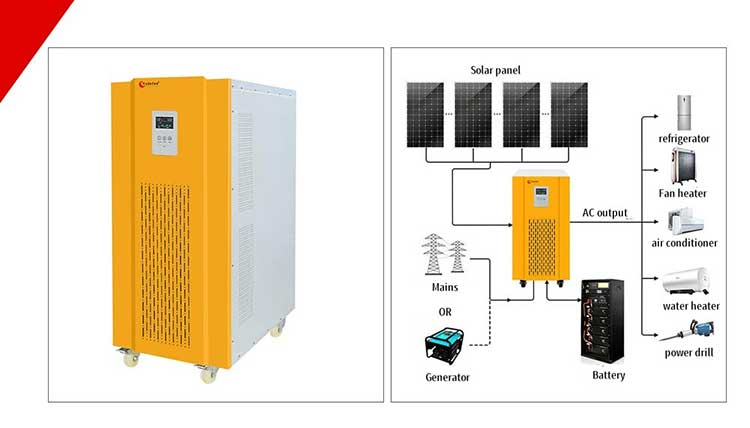
Xindun WD solar inverter provides DC 12V/24V/48V/96V/192V/240V/384V to AC 110V/120V/220V/230V/240V, power range is 500W-40KW
Xindun WD inverter is low frequency solar inverter. It not only has a wide range of power options from 500W to 40KW to adapt to different scales and power requirements, but also adopts low frequency pure sine wave output technology to ensure that the load is provided with stable power that is highly consistent with the AC waveform, effectively protecting sensitive equipment from power fluctuations. Xindun WD inverter shows extremely high flexibility and can adapt to various types of batteries such as lead-acid batteries, lithium batteries, and gel batteries to meet the energy storage needs of different users. At the same time, its intelligent control system supports RS232/mobile phone APP remote monitoring, and users can grasp the working status of the inverter anytime and anywhere to achieve convenient power management.
Xindun LF Solar Inverter
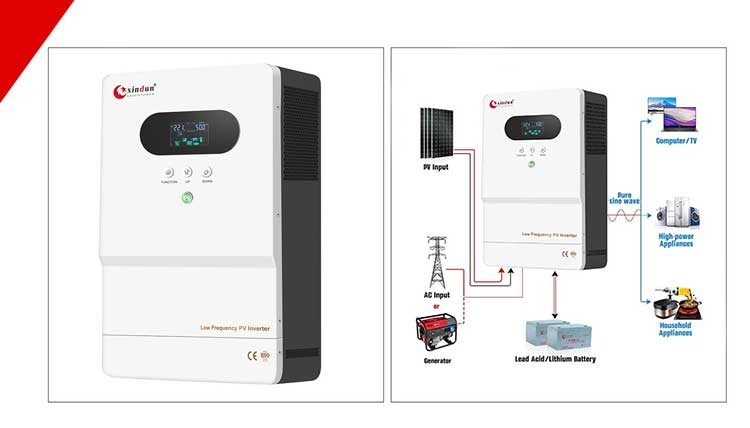
Xindun LF solar inverter provides DC 12V/24V/48V to AC 110V/120V/220V/230V/240V, with a power range of 1000W-12KW
Xindun LF inverter is a highly efficient pure sine wave power frequency inverter with excellent performance and reliable safety protection mechanism. When the startup peak power exceeds three times, the inverter can automatically activate comprehensive protection functions to ensure the safety and stability of the equipment under various working conditions. The device is compatible with various types of batteries, including lead-acid batteries and lithium batteries, and users can flexibly replace them according to needs. The inverter also supports RS485 communication function, which facilitates remote monitoring and management, allowing users to keep track of power usage at any time. In addition, the mains charging power range can be adjusted to 0-30A, and a variety of working modes are provided for users to choose, supporting battery charging through mains, generators or solar energy. Its wall-mounted design not only saves space, but also facilitates installation, suitable for a variety of scenarios such as industrial and civil use.
Xindun HDSX Solar Inverter
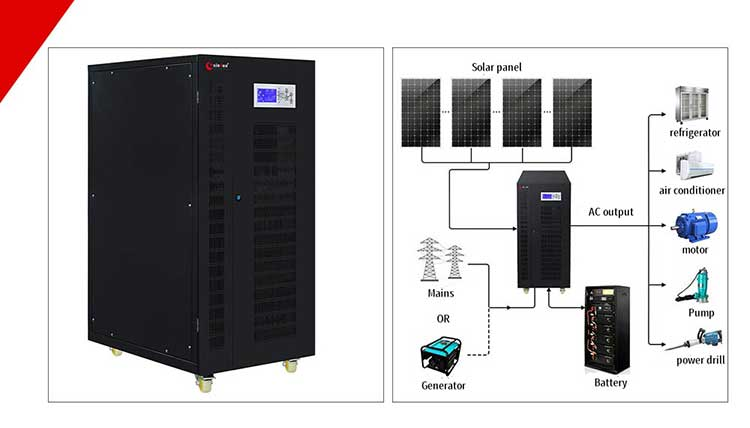
Xindun HDSX three-phase solar inverter provides DC 48V/96V/192V/384V to AC 380V/400V, with a power range of 3.2KW-160KW
Xindun HDSX inverter is an efficient three-phase solar inverter with UPS power supply function, which can ensure the stability of power supply when there is a power outage or fluctuation in the power grid. It is suitable for the needs of high-power loads, especially in the industrial and commercial fields. The inverter adopts advanced power conversion technology, which can efficiently convert DC power into pure sine wave AC power, with stable output voltage and high-quality waveform. It has three-input and three-output functions, supports three-phase unbalanced loads, and can easily cope with inductive and impact loads, showing excellent load capacity. In addition, it supports single-phase and three-phase voltage output, has an ultra-wide voltage input range, can adapt to a variety of voltage environments, and ensure the reliability of power supply. Users can also choose to equip it with a built-in MPPT/PWM solar controller to charge with solar energy to achieve efficient energy utilization and sustainable development. The inverter is also equipped with RS485 communication interface and mobile phone APP (WIFI/GPRS) remote monitoring function. Users can monitor the operating status, battery power and fault information of the inverter anytime and anywhere, and easily realize intelligent management.
Xindun ESS Solar Inverter Generator
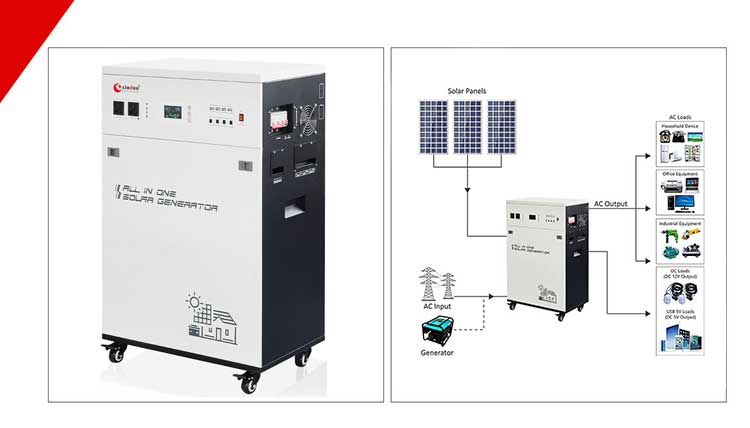
Xindun ESS all in one solar generator provides DC 12V/24V/48V to AC 110V/120V/220V/230V/240V, DC 12V, USB 5V, with a power range of 500W-7000W
Xindun ESS all in one solar generator is integrated inverter, lead-acid battery and solar controller, providing multiple voltage output interfaces, capable of supporting AC and DC USB ports (5V, 12V) output to meet the needs of different devices. The setting range of its AC charging current is 0-30A, and users can flexibly adjust it according to actual usage. It supports AC priority or solar priority mode, and users can switch according to specific needs to ensure adaptability in various scenarios. Its triple peak power enables it to meet the needs of a variety of devices and loads.
ESS all in one solar generator is suitable for areas in Ghana where electricity is unstable or electricity costs are high. It can not only provide a stable and reliable power supply, but also reduce dependence on traditional power grids through solar energy storage systems, thereby reducing electricity costs. In this way, users can improve the sustainability of electricity use and promote both environmental protection and economic benefits.
HFP Hybrid Solar Inverter
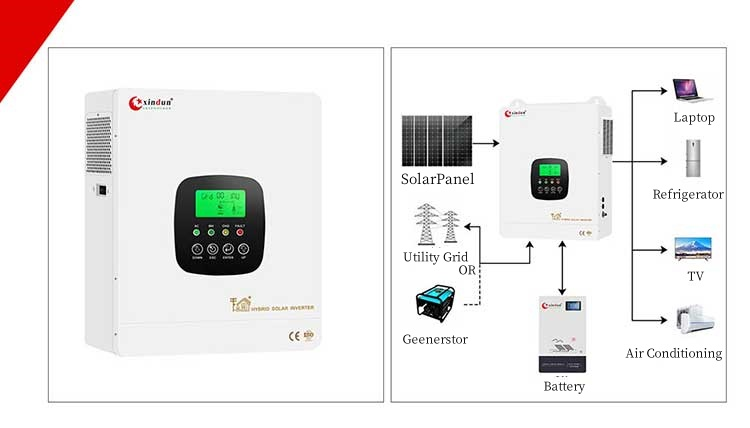
Xindun HFP on grid and off grid hybrid solar inverter provides DC 24V/48V to AC 220V/230V/240V, with a power range of 1.3W/-12.3KW
Xindun HFP inverter is high-frequency on grid and off grid hybrid solar inverter with built-in MPPT solar controller, which can maximize the use of solar energy resources to meet Ghana's growing energy needs. It can support three working modes: on-grid, off-grid and hybrid, and can work without batteries, which can reduce system expenses. In the face of Ghana's complex environment, different working modes can be flexibly selected. The inverter has a conversion efficiency of up to 94%, has a bidirectional energy storage function, can realize bidirectional flow control of electric energy, and can charge the battery with solar power. It also supports power feeding to the grid, and can sell excess electricity to the grid to earn more revenue. Help Ghana relieve financial and economic pressure.
IX. Why choose Xindun Power?
Xindun Power is a company with more than 20 years of professional production in the field of inverters, focusing on the research and development, production and sales of solar power generation products. We have brought together a professional team in technical research and development, production management and quality control, with rich industry experience. The main products sold include pure sine wave inverters, solar controllers, off-grid solar inverters, solar power systems and related supporting products. These products have passed the ISO9001 international quality management system certification and obtained CE, IEC, CCC and other professional testing certifications to ensure their excellent quality and performance. Xindun Power's products not only have efficient energy conversion rates and stable power output, but also meet the diverse power needs of the Ghana market. They are suitable for daily household electricity use, commercial operations, industrial manufacturing and other fields, providing stable and reliable power support.
Xindun also has modern production plant of more than 10,000 square meters and research and development team of more than 30 people. It can not only provide customers with OEM/ODM special customization services, but also provide perfect pre-sales services and after-sales guarantee services. We also provide comprehensive warranty services:low frequency inverters and solar controllers enjoy 3-year warranty period, and high-frequency inverters provide 1-year warranty period. At the same time, customers can enjoy lifelong technical support. During the warranty period, we will replace any required accessories for customers free of charge. Xindun Power's products have been exported to more than 100 countries and regions, especially in the African market, where our brand influence is far-reaching. We have also established long-term business contacts with Southeast Asia, the Middle East, Latin America and other regions, and established branches in East Africa, West Africa, South Asia, and Southeast Asia, with warehouse centers and marketing centers, so as to provide technical support and services to the market in a timely manner.
As an important partner of China in Africa, Ghana has growing demand for high-quality solar products. As a leader in the solar industry, Xindun Power not only enjoys the support of national policies and funds, but also becomes the preferred power manufacturer in the Ghana market with its product advantages and brand strength in the tide of China-Africa economic and trade cooperation. If you are interested in Xindun's solar power system or inverter and other products, please fill in your information and needs in the customer service window at the bottom of our website (https://www.xinduninverter.com). Xindun's team will contact you as soon as possible during working hours to meet your consultation and procurement needs.
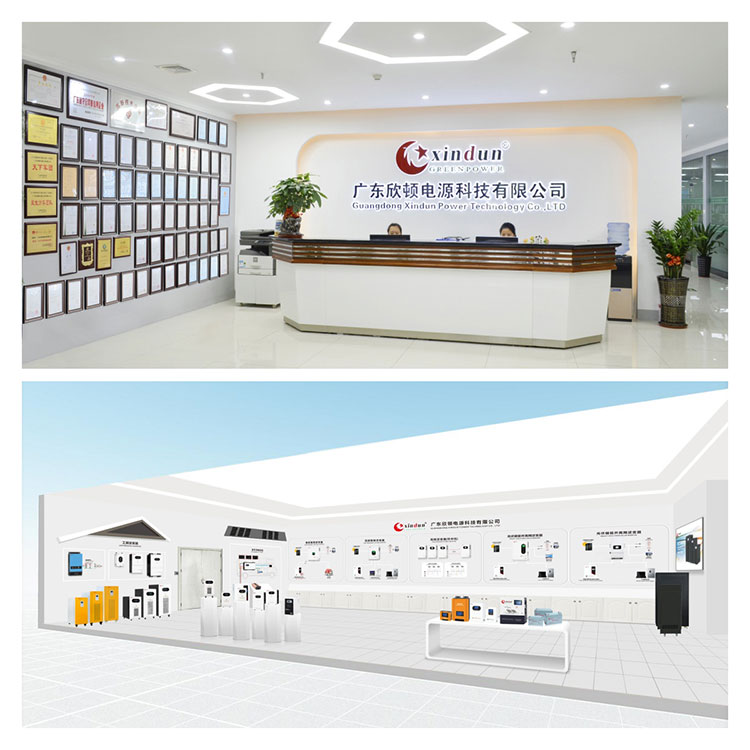
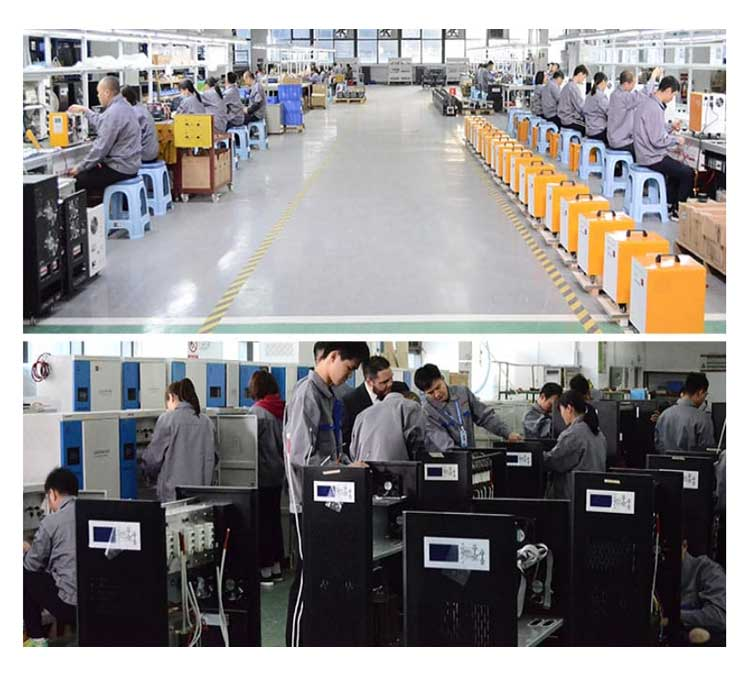

 Solar Inverter
Solar Inverter





 Hybrid Inverter
Hybrid Inverter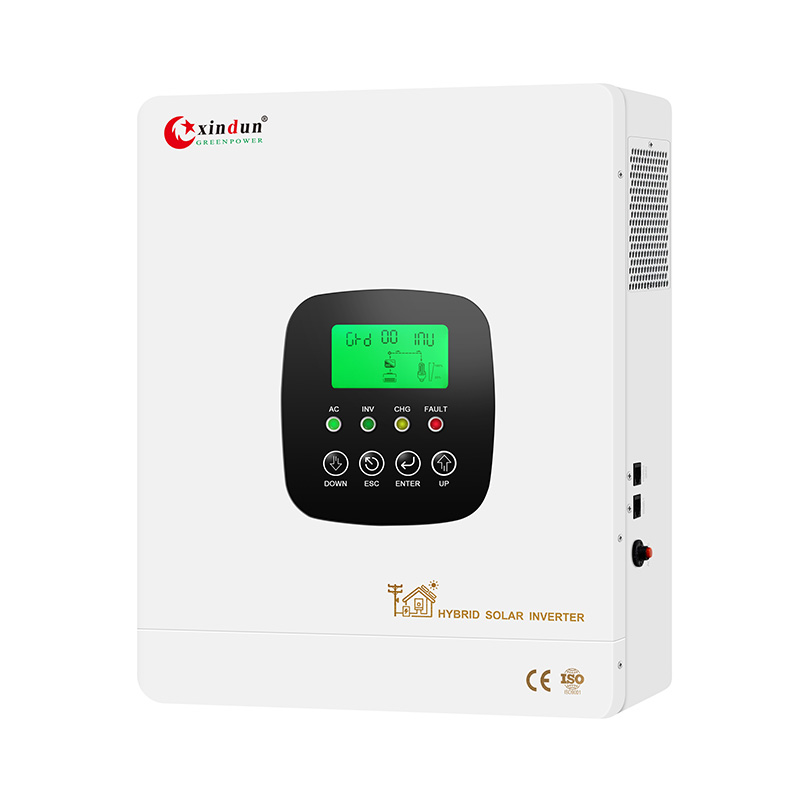
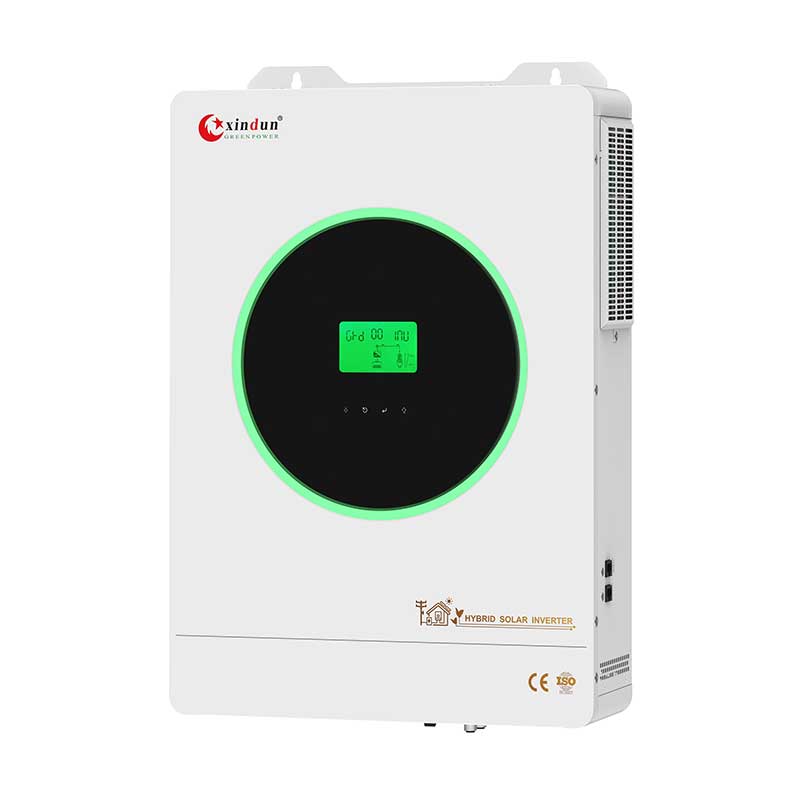
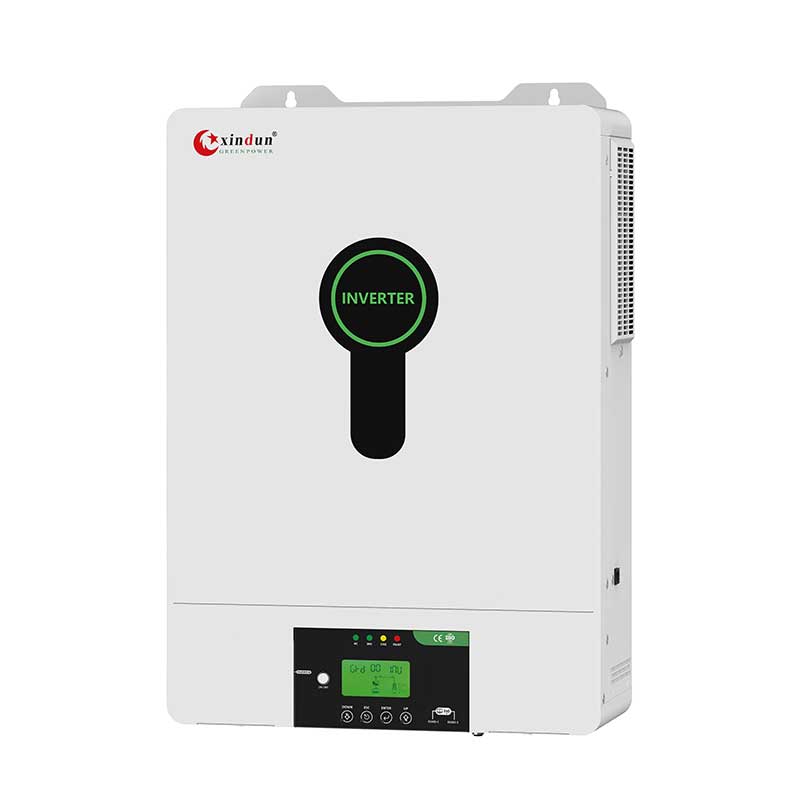


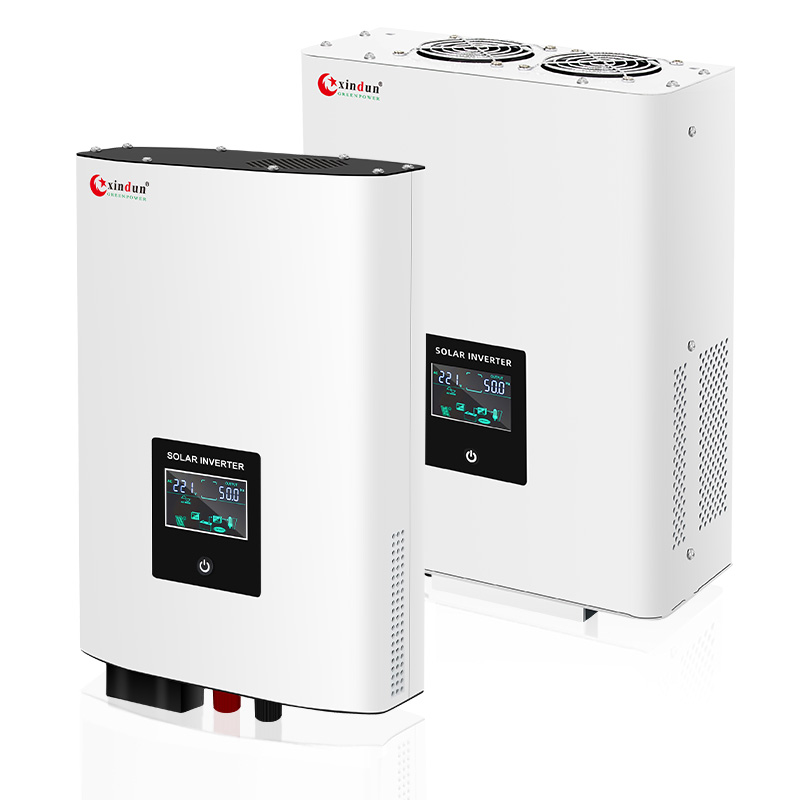
 Power Inverter
Power Inverter
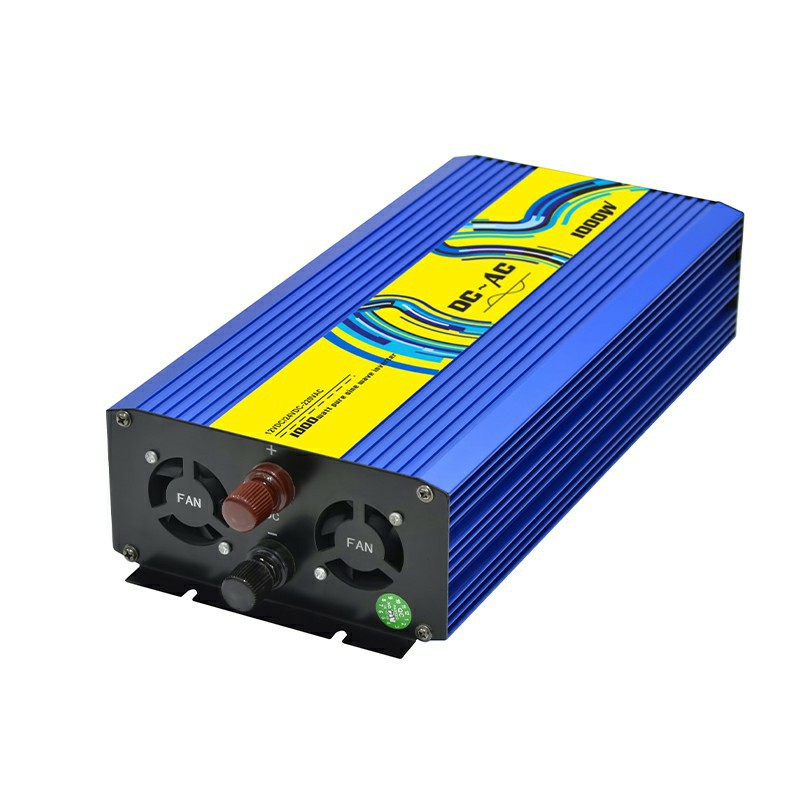


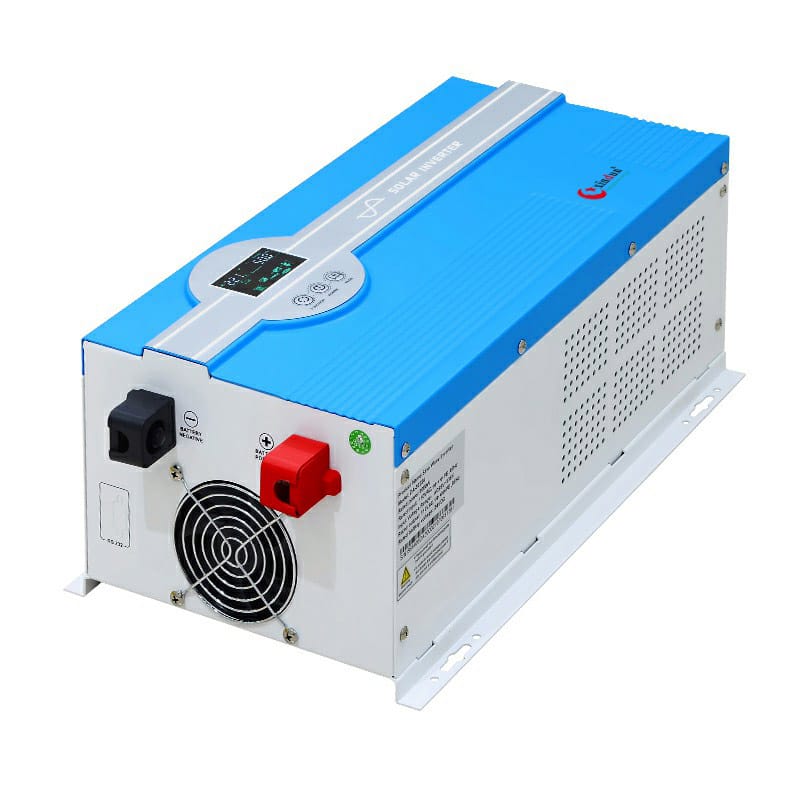
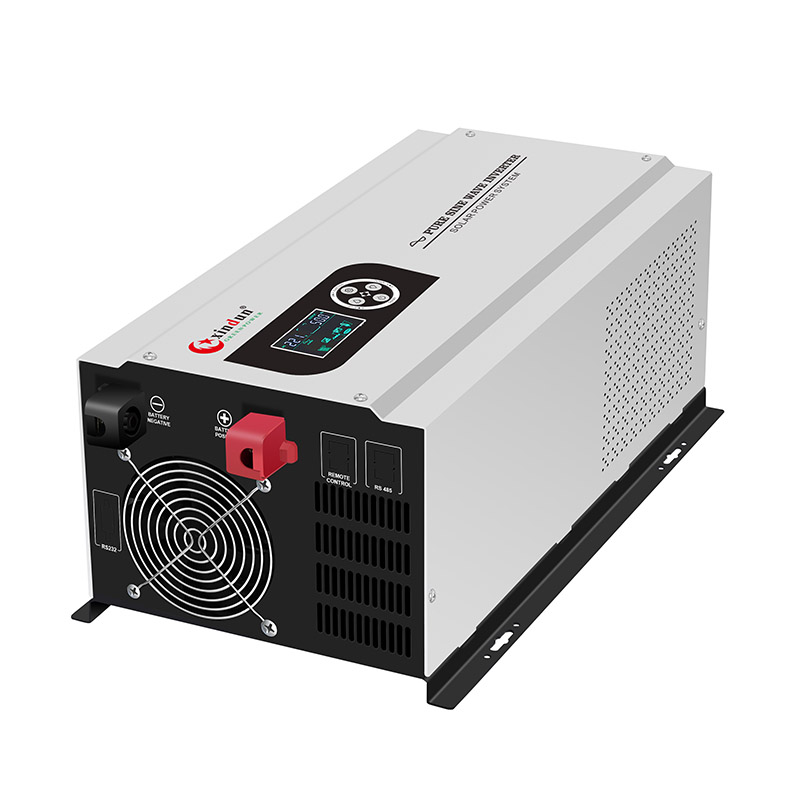
 Split Phase Inverter
Split Phase Inverter

 Energy Storage Inverter
Energy Storage Inverter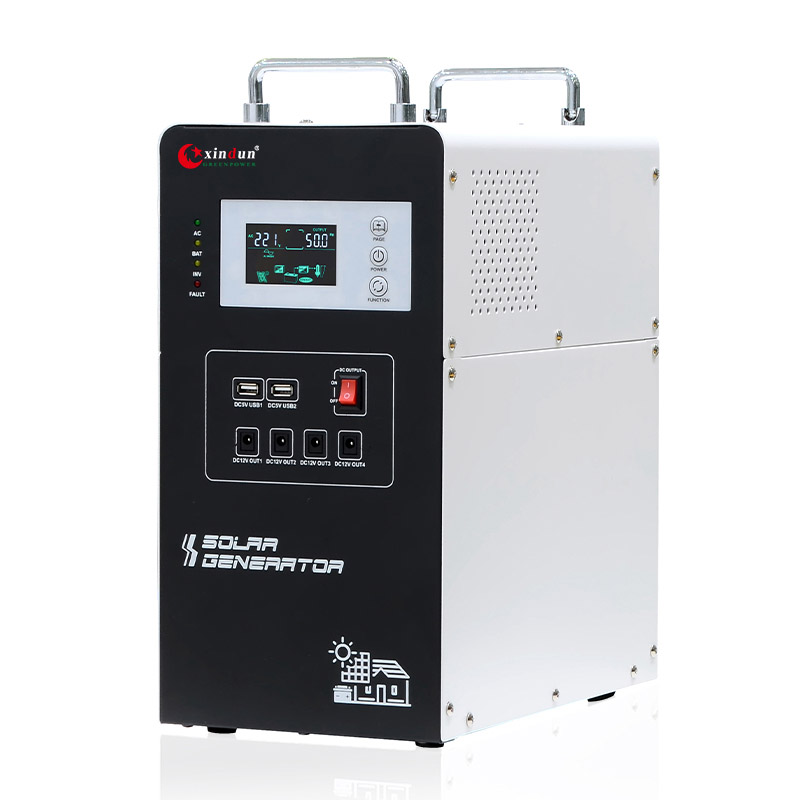




 3 Phase Inverter
3 Phase Inverter
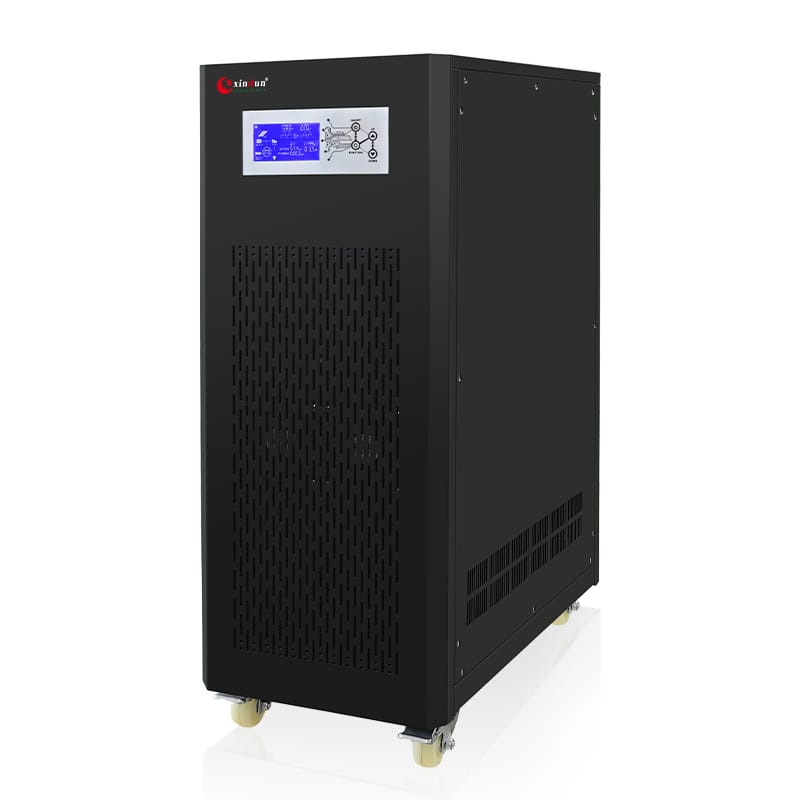



 Solar System Kits
Solar System Kits





 Solar Charge Controller
Solar Charge Controller
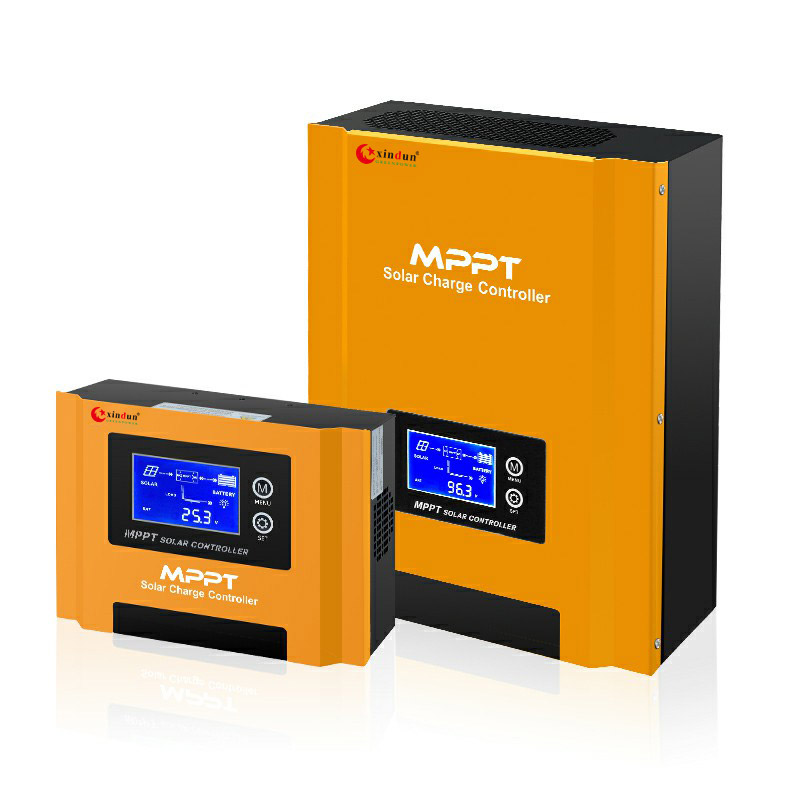

 Solar Battery
Solar Battery



 Asia
Asia
 Africa
Africa



 South America
South America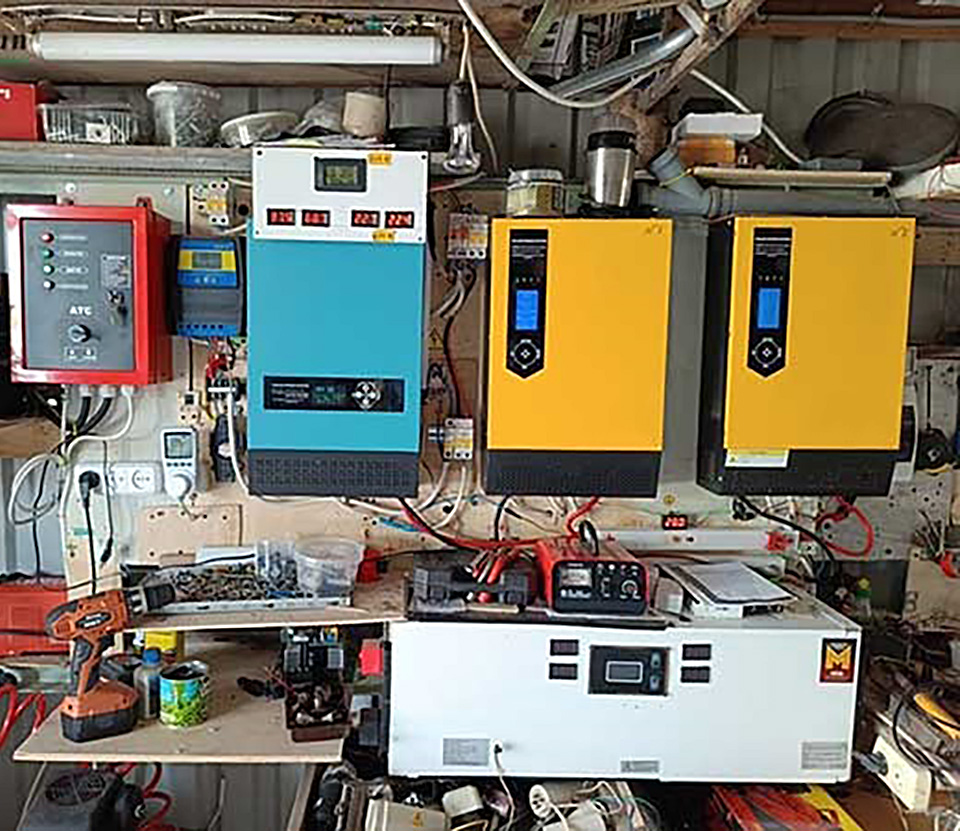
 Europe
Europe

 North America
North America

 Oceania & Antarctica
Oceania & Antarctica










 Home
Home The Solar Power Market and Hybrid Solar Inverter Development In Nigeria
The Solar Power Market and Hybrid Solar Inverter Development In Nigeria  Top Selling Products
Top Selling Products














